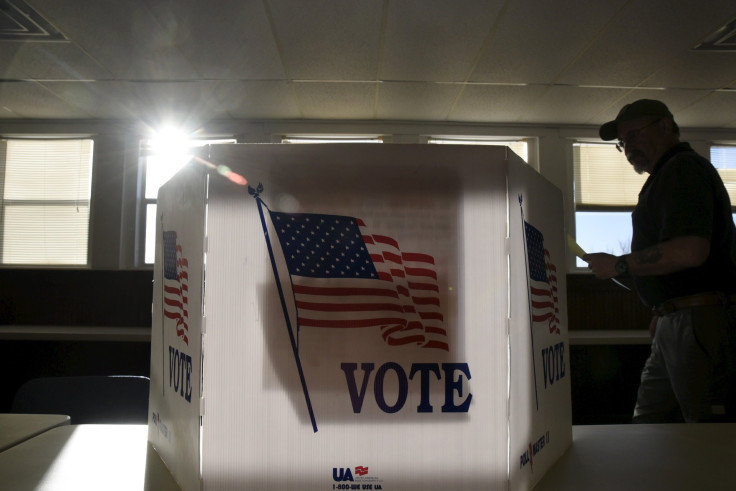Why Don't People Vote? 8 Reasons Why Americans Don't Exercise Their Voting Rights

With one week left until Election Day, many prospective voters are studying up on their poll locations and checking any necessary documents needed to hit the polls on Nov. 8.
However, there are still many that do not vote. Some of those reasons extend beyond mere apathy or simply ‘being out of town’ for Election Day. So why don’t some people vote? Here are eight major reasons why people do not make it to the polls or cast their ballots.
- Convicted Felons or Those In Prison: Depending on state law, those who are convicted felons are denied the right to vote or they need to petition for their right to vote. In more than 20 states, those who are incarcerated, on parole, or on probation cannot vote. Convicted felons in those states are only allowed to vote after finishing their sentence, according to the ACLU.
- Voter-Identification Laws: Many states require some form of identification to vote at the polls. In order to obtain the forms of identification necessary, fees and work hours can get in the way of processing a form of identification, which could be an issue, the Washington Post reported. In addition, some voters are unaware they need to show a photo ID in certain states. One-in-five voters did not know that they needed to produce a photo ID to vote within states that required it, according to Pew Research.
- People Think Their Votes Do Not Count: Whether it’s from general apathy or disenchantment with politics and the voting system, some people simply do not think that their vote counts. In another survey published in March by Pew Research, one-in-ten Americans did not learn about the presidential election from any of 11 types of sources in a week. Half of that very group did not believe that their vote did not “affect how the government runs things.”
- Issues with Registration: Registration difficulties and mishaps were a big issue, according to a Bloomberg article that highlighted a U.S. Census study of voters who said they did not or were not able to vote. The report found that a big issue was voters not getting their mail-in ballots.
- Illness or Disability in Elderly Voters: Forty-two percent of people 65 years and older reported that health issues, illness or disability rendered them unable to reach the polls, according to the Bloomberg Census report.
- Election Circumstances: Voters’ willingness to participate in a presidential election was dependent upon the candidates and their similarities in policy or the ambiguity surrounding their policies. “Turnout is similarly depressed if people feel that the differences between the choices on offer are small or that the connection between who makes it into office and the policies they pursue is vague,” author and professor of politics at Queen Mary University of London Tim Bale wrote in a Guardian piece in July.
- Money Factors: Nearly 24 percent of voters who earned at least $150,000 a year reported that they were simply out of town on Election Day, according to the Bloomberg Census report. For those making less than $20,000 annually, a little more than 20 percent also cited “illness of disability” as the issue.
- Taking PTO to Vote: This is a case-by-case instance as most states in the U.S. require employers to give employees time off to vote on Election Day. Typically, the paid time off, or PTO, allotment is two hours. For those who might be paid an hourly wage, exceeding the allotted time due to long polling lines could discourage them from taking the time at all, the Guardian points out. While employees may be allowed to leave work in order to vote, that time could also be unpaid. States like Arkansas and Georgia allow employees time off to vote, but the time is not paid, according to Nolo.
© Copyright IBTimes 2025. All rights reserved.
Join the Discussion






















